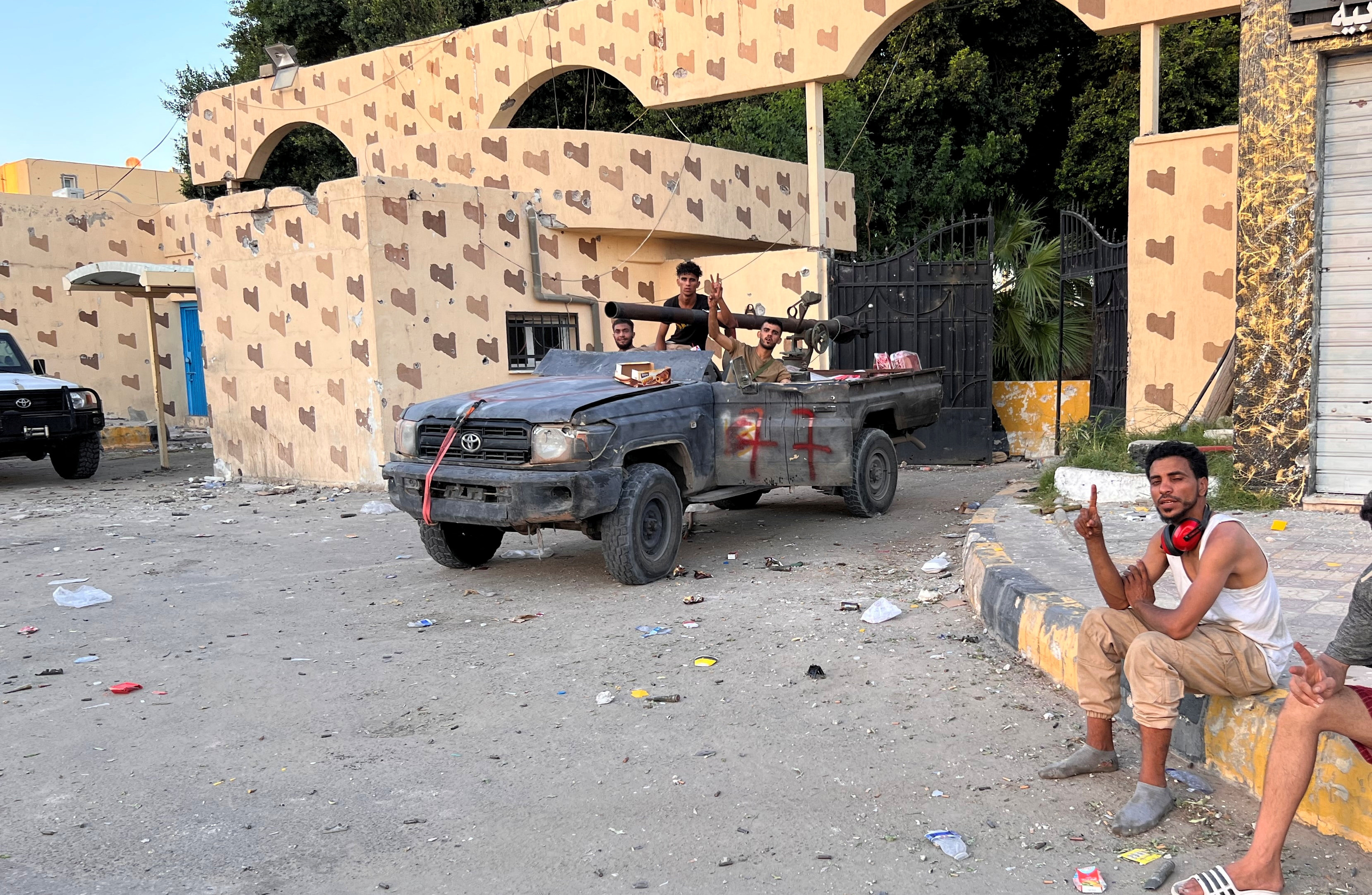
Clashes between militias backed by Libya’s rival governments have killed at least 32 people and wounded 159 more, according to the country’s health ministry.
The fighting in Libya’s capital, Tripoli, on Saturday was the worst there in two years and has raised fears the country could plunge back into full-blown war.
The health ministry said on Sunday that 32 people were killed in Saturday’s violence and 159 were injured, up from a ministry source’s previous estimate of 23 deaths and 87 injured.
Among the fatalities was Mustafa Baraka, a comedian known for his social media videos mocking militias and corruption. Baraka died after he was shot in his chest, said Malek Merset, an emergency services spokesman.
Merset said emergency services were still trying to evacuate wounded people and civilians trapped in the fighting, which erupted overnight and continued into Saturday evening.

The health ministry said 140 people had been wounded while 64 families had to be evacuated from areas around the fighting. It said hospitals and medical centres in the capital were shelled, and ambulance teams were barred from evacuating civilians, in acts that “amount to war crimes”.
Al Jazeera’s Malik Traina reported a cautious calm in Tripoli on Saturday evening. “Things have calmed down since the fighting began. But people here still fear that Libya may be on the verge of a full-scale conflict,” he said from the Libyan capital.
The standoff for power in Libya has pitted the Tripoli-based Government of National Unity (GNU) under Abdul Hamid Dbeibah against a rival administration under Fathi Bashagha that is backed by the eastern-based parliament.

Dbeibah’s GNU, installed as part of a United Nations-led peace process following a previous round of violence, said the latest clashes in Tripoli were triggered by fighters aligned with Bashagha firing on a convoy in the capital while other pro-Bashagha units had massed outside the city.
It accused Bashagha of backing out of talks to resolve the crisis.
Bashagha’s attempt on Saturday to take over in Tripoli was his second such attempt since May.
Bashagha, who is backed by Libya’s parliament and eastern-based military strongman Khalifa Haftar, says the GNU’s mandate has expired. But he has so far been unable to take office in Tripoli, as Dbeibah has insisted he will only hand over power to an elected government.
His administration said in a statement that it had never rejected talks and that its own overtures had been rejected by Dbeibah.
It did not directly respond to the assertion that it was linked to the clashes.
Witnesses told the Reuters news agency that forces aligned with Bashagha tried to take territory in Tripoli from several directions on Saturday, but his main military convoy turned back towards the coastal city of Misrata before reaching the capital.
Dbeibah later posted a video online showing him visiting fighters in the city after the clashes stopped.
Turkey, which has a military presence around Tripoli and helped forces in the city fight off an eastern assault in 2020 with drone attacks, called for an immediate ceasefire and said “we continue to stand by our Libyan brothers”.
The United States’s ambassador to Libya, Richard Norland, said in a statement that Washington “condemns” the surge in violence, urging an “immediate ceasefire and UN-facilitated talks between the conflicting parties”.

Emadeddin Badi, a senior fellow at the Atlantic Council, warned that the violence could quickly escalate.
“Urban warfare has its own logic, it’s harmful both to civilian infrastructure and to people, so even if it isn’t a long war, this conflict will be very destructive as we have already seen,” he told AFP.
He added that the fighting could strengthen Haftar and those close to him.
“They stand to benefit from western Libya divisions and have a better negotiating position once the dust settles.”
The municipal council of Tripoli blamed the ruling political class for the deteriorating situation in the capital, and urged the international community to “protect civilians in Libya”.
“Civil society institutions in Tripoli strongly condemn the armed clashes in the city of Tripoli and hold the participating parties responsible for shedding civilian blood, intimidating security, and destroying private and public property,” said Omar Weheba, a city official.
Libya has had little peace since the 2011 NATO-backed uprising that overthrew Muammar Gaddafi and it split in 2014 between rival eastern and western factions, dragging in regional powers.







